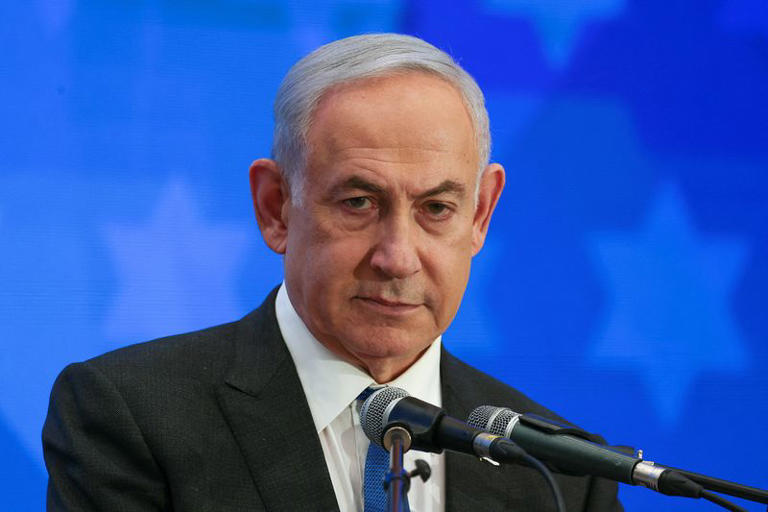Middle East Conflict Escalation: Tensions rise as Israeli strikes kill top Hamas and Hezbollah leaders. Netanyahu warns of severe consequences for aggression while Hamas and Iran vow retaliation.
© Provided by The Telegraph
Middle East Conflict Escalation
The Middle East is experiencing a severe escalation in conflict following recent high-profile strikes that have intensified the ongoing hostilities. Israeli Prime Minister Benjamin Netanyahu has issued a stark warning that any aggressors will face a “heavy price” as tensions mount between Israel and its adversaries. This latest development comes after separate strikes resulted in the deaths of key figures from Hamas and Hezbollah, heightening the already volatile situation in the region.
Targeted Strikes on Key Leaders
The latest escalation in the Middle East conflict began with the assassination of Ismail Haniyeh, the political leader of Hamas. Haniyeh was killed in Tehran on Wednesday morning, a move that has been widely attributed to Israeli forces, though Netanyahu’s government has not confirmed or claimed responsibility for the assassination. This act has further inflamed the situation, with Hamas and Iran’s Revolutionary Guards acknowledging Haniyeh’s death and condemning the attack.
In addition to Haniyeh’s assassination, a significant strike targeted Fuad Shukr, a senior commander of Hezbollah. Shukr was killed in a strike on Beirut, Lebanon’s capital. This attack was reportedly in retaliation for a rocket strike from Hezbollah that had killed a dozen young people in the Israeli-occupied Golan Heights. Netanyahu described Shukr as “one of the most wanted terrorists in the world” and highlighted his role in the connections between Iran and Hezbollah.
Netanyahu’s Firm Stance
In response to the recent strikes, Netanyahu addressed the public with a firm stance. He emphasized that Israel has delivered crushing blows to its adversaries, including Hamas and Hezbollah, and warned that any further aggression would be met with a strong response. “We are prepared for any scenario and will stand united and determined against any threat,” Netanyahu declared in a televised statement.
Despite growing domestic and international pressure to end the war in Gaza, Netanyahu remained resolute. He stated that he had been consistently urged to halt the conflict but had not yielded to these calls. Netanyahu commended the Israeli Defense Forces (IDF) for their operations and vowed to continue the fight until victory is achieved.
Hamas and Iran’s Retaliation Threats
The response from Hamas and Iran has been swift and forceful. Hamas’s armed wing has warned that Haniyeh’s killing will have “major repercussions” and will escalate the conflict to new dimensions. The group has vowed to take the battle to a new level, signaling further violence in the region.
Iran has also reacted strongly, pledging retaliation against Israel. Iran’s Supreme Leader Ayatollah Ali Khamenei has stated that Israel has set the stage for “harsh punishment” and that it is Tehran’s duty to avenge Haniyeh’s death. Iran’s stance reflects its deep involvement and interest in the conflict, highlighting its role as a key player in the Middle East’s ongoing turmoil.
The Broader Conflict in Gaza
This escalation is part of a broader and deeply entrenched conflict that began with Hamas’s attack on Israel on October 7th. That assault resulted in around 1,200 Israeli casualties and approximately 250 hostages taken by Hamas fighters. In response, Israel launched a full-scale war in Gaza that has now lasted nearly ten months.
The conflict has had devastating consequences for Gaza, with reports indicating over 39,400 people killed and more than 90,900 wounded, according to figures from the Hamas-run health ministry in Gaza. These statistics reflect the severe human cost of the ongoing conflict and underscore the urgent need for resolution.
International Reactions and Future Implications
The international community watches closely as the Middle East conflict continues to escalate. Various countries and organizations have expressed concern over the rising violence and the humanitarian impact on civilians. As the situation develops, there are calls for diplomatic efforts to de-escalate tensions and address the root causes of the conflict.
In the meantime, the Middle East remains on edge, with both sides preparing for further confrontations. The recent strikes and subsequent responses illustrate the complex and volatile nature of the region’s politics, where alliances and enmities shift rapidly.
Conclusion
The Middle East conflict escalation marks a critical juncture in an ongoing and deeply entrenched struggle. With key leaders from Hamas and Hezbollah targeted and major powers like Iran vowing retaliation, the potential for further violence remains high. As the situation continues to evolve, the global community watches closely, hoping for a resolution that can bring lasting peace to a region long plagued by conflict.
ALSO READ:
“UK Targets Russian Nuclear Threat: 7 Terrifying Targets Revealed”
